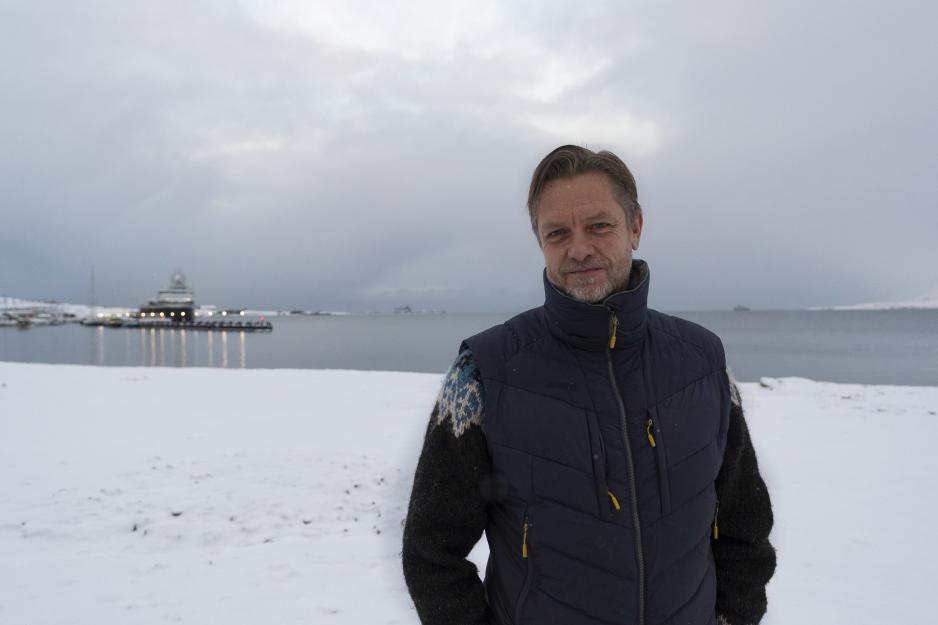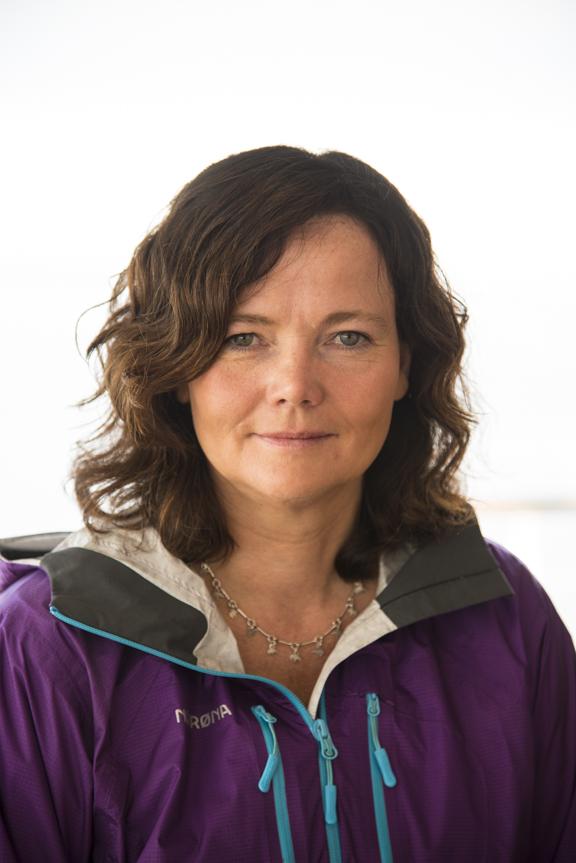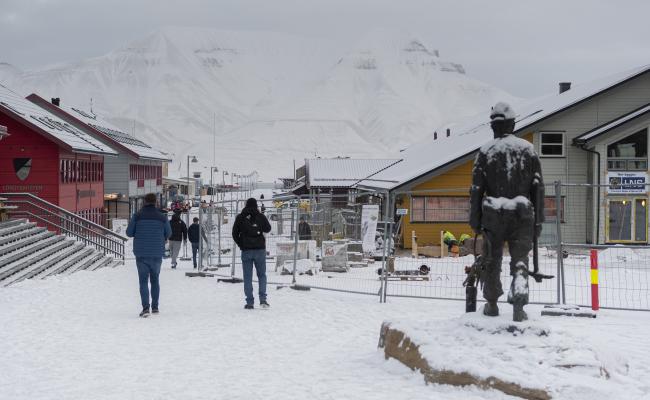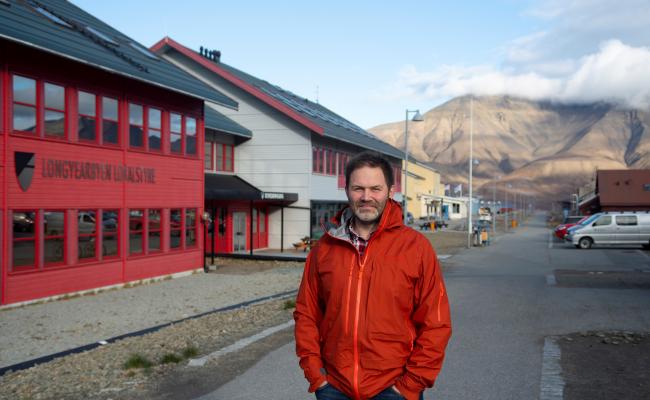Asks Norwegian Government to Withdraw Svalbard Hearings

“We ask the Minister of Justice and the Minister of Climate and Environment to reset the process and involve the professional community and local competence in working out a new draft”, says General Manager Terje Aunevik of Svalbard Business Association. (Photo: Line Nagell Ylvisåker)
Businesses in Svalbard demand the government withdraw hearings with “invasive regulation proposals”. “When one is to shape proposals for such invasive measures for an entire community, we expect to be involved and listened to”, says General Manager Terje Aunevik of Svalbard Business Association.
In September, the then-Solberg government sent out hearings with proposals for new regulations applicable to Svalbard.
Now, Visit Svalbard in collaboration with the Association of Arctic Expedition Cruise Operators (AECO) and Svalbard Business Association demand that the [new] government withdraw the hearing about field safety and the one about the Svalbard environment (see fact boxes below).

General Manager Ronny Brunvoll of Visit Svalbard. (Photo: Line Nagell Ylvisåker)
“We request the new government withdraw the invasive regulation proposals from the previous government. The proposals appear rushed, create insecurity about framework conditions for tourism and other business, employment and investments in the entire Svalbard community”, General Manager Ronny Brunvoll of Visit Svalbard writes in a press statement.
Major changes
He stresses that both Visit Svalbard, AECO, and Svalbard Business Association fully support the purpose of the proposals, which is to preserve a vulnerable nature environment, protect cultural heritage, and maintain security for people in the field.
Ronny Brunvoll says the many different regulation proposals involve major changes for tourism as well as the local community. Proposed changes include a new certification scheme for all guides, a ban on cruise vessels with more than 200 passengers, and – with some exceptions – a general ban on travel in protected areas for cruise tourists.
Everyone who does not live in Svalbard will also have to apply four weeks in advance for a formal permission to move outside the plan areas.
Thirty years of local experience in tourism have not been heard.
Against professional advice
A unified business sector in Svalbard argues that the process leading up to the proposals being sent on hearing has been poor, and that the proposals are not supported by empirical background and analysis.
Brunvoll argues that several of the proposals contradict professional advice from a.o. the Norwegian Institute of Nature Research (NINA) and the Norwegian Polar Institute, and that the proposals are based on a precautionary principle even where actual knowledge exists or could have been produced.
“Thirty years of local experience in tourism has not been heard, while existing knowledge and tools have been ignored”, says Frigg Jørgensen, CEO of the Association of Arctic Expedition Cruise Operators (AECO).
New proposals
“The fact that consequences for companies, the local population and the local community has not been better explored or is even absent in most areas, is quite serious. When such invasive measures for an entire community are to be shaped, we expect to be involved and listened to”, says General Manager Terje Aunevik of Svalbard Business Association.
“That is why we ask the Minister of Justice and the Minister of Climate and Environment to reset the process and involve professional communities and local competence in working out a new proposal.”
In a joint statement, Visit Svalbard, Svalbard Business Association and AECO say that they want to preserve a pristine nature environment, protect cultural heritage and maintain field security for guests. They also say they support the goal about unserious and irresponsible tourist operators not operating in Svalbard.
However, they argue, the proposals are not much suited for pursuing these goals.
“If the new government would withdraw the proposals, a unified tourist industry in Svalbard is ready to contribute to good solutions in a new and inclusive process”, their statement reads.
Hearing proposal: The Svalbard Environment Act, with relevant regulations
- Regulate tourist operators’ permission to enter land from boats in protected areas. Abandon the principle that entering is allowed as a main rule, and change it to the main rule being that it is prohibited in protected areas other than in 42 specifically defined areas.
- Cruise vessels navigating in the protected areas may have a maximum of 200 passengers onboard.
- Tightening ban on seeking out polar bears and a requirement about keeping at least 500 meters distance.
- Ban on motorized travel on sea ice in several areas from 1 March
- Ban on breaking permanent ice and ice that is forming, with the exception of the ports in Longyearbyen, Barentsburg and Ny-Ålesund
- Speed limit at sea of 5 knops within 500 meters from selected bird mountains from 1 April to 31 August.
- Minimum distance of 300 meters to walruses’ resting places when entering from sea.
- Ban on using underwater vehicles.
- Requirements to applications for tent and camp stays for tourist, field, research and education purposes. Others have to apply if they are to tent in one and the same location for more than one week. Requirement about polar bear guard on-duty having to be awake.
- Ban on drones and remotely controlled or autonomous devices in air and on the ground and under water in the protected areas. Ban on the use of drones closer than 500 meters to bird mountains for the period 1 April to 31 August.
Hearing proposal: Tourist Regulation Turns Field Safety Regulation
- Requirements for Svalbard guides to be certified.
- Tourist and field operators must apply for permission to travel and organize activity all over Svalbard. Previously, a notification requirement was in force.
- Research and education activity will also be subject to insurance obligations, just like tourist and field operators.
- Former residents are considered tourists/individual travelers according to the regulation.
- Guns and deterrence means for chasing off polar bears outside inhabited areas will be required. Residents are responsible themselves for deciding when to bring a gun.
- The Package Travel Act shall apply to Svalbard.
Also read
This article was originally published in Norwegian and has been translated by HNN's Elisabeth Bergquist.




